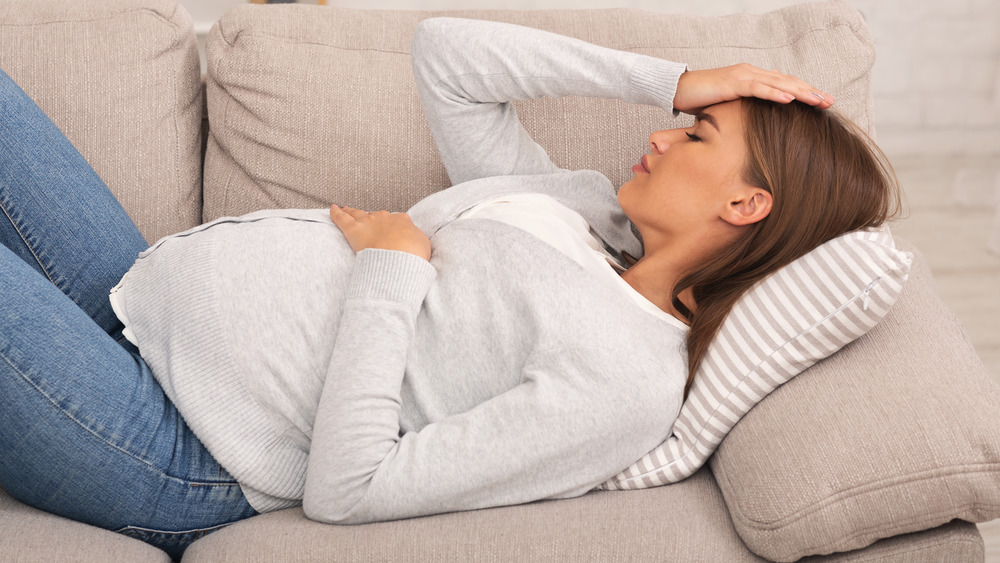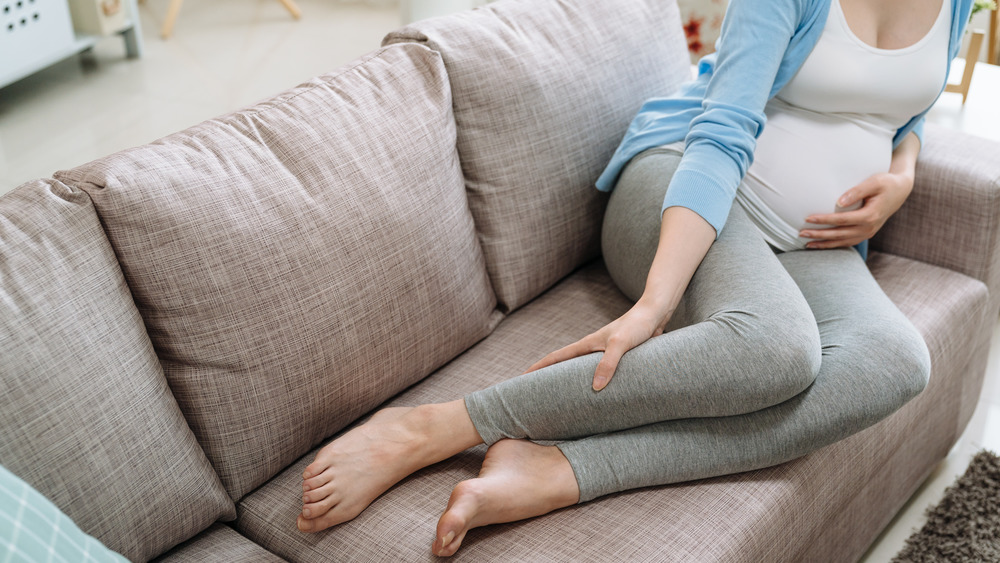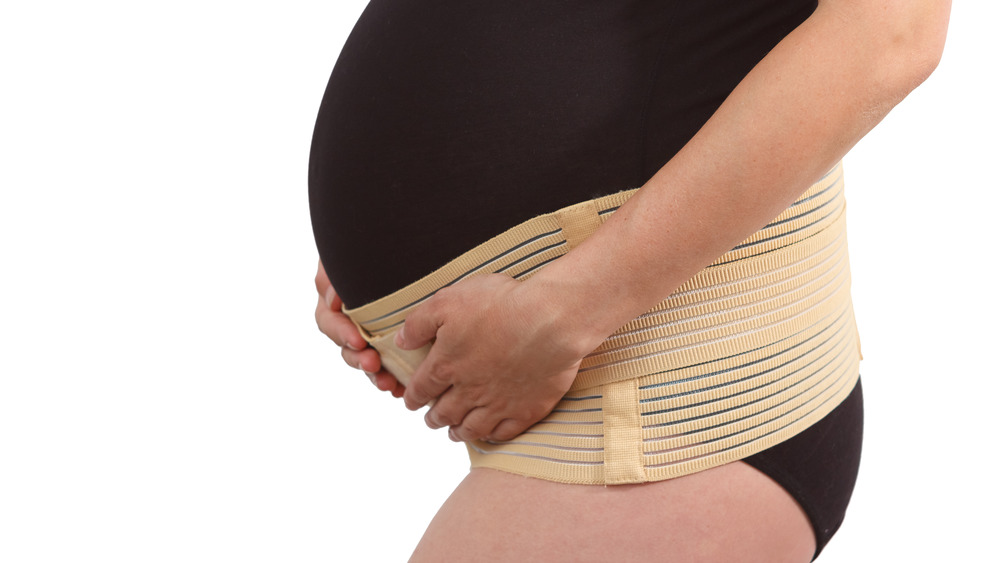Here's How To Deal With Painful Pregnancy Cramps
Pregnancy symptoms can often be uncomfortable. Bloating, swelling feet and ankles, nausea, heartburn, insomnia, weird food cravings – all of these, and many more, may be a constant source of irritation for the next nine months. Other pregnancy symptoms can be downright embarrassing — your expectant motherhood may (or may not) lend you a Madonna-like glow (Madonna as in the BVM, not the one who popularized bustiers as outwear back in the '80s), but it will also make you fart like a Clydesdale. As if that wasn't bad enough, WebMD says pregnancy gives you a 50-percent chance of developing acne, as well.
There is one pregnancy symptom that, while fairly common, is also fairly terrifying: cramps. While that cramping sensation in the abdomen is one that many women experience on a monthly basis, cramping that occurs during pregnancy may immediately lead to the worry that something is wrong with the baby. Natasha Spencer, MD, an OB-GYN with Orlando Health Physician Associates, says that in most cases, there's nothing to worry about.
What causes pregnancy cramps
Spencer tells us that cramps, while they may not be as talked-about a part of pregnancy lore as an aching back or a sudden desire to eat dill pickles and rocky road ice cream at midnight, are nevertheless totally normal. She explains that, "Once becoming pregnant, the body experiences normal changes that may cause mild period-like cramping and pain in the lower [abdomen] and pelvis, due to the uterus growing." This sensation, she says, "may feel like stretching, pressure and pulling," a sensation caused by the fact that the ligaments that support the uterus are themselves stretching out as this organ expands.
This cramping sensation, which may be most noticeable whenever you sneeze, cough, or change positions, is, according to Spencer, "common in most women and usually temporary." She also mentions that such cramping may be a possible side effect of the Braxton-Hicks contractions that often occur in late pregnancy.
What to do if you're experiencing pregnancy cramps
If the cramping and abdominal pain you're experiencing is relatively minor, Spencer says "there are several supportive things you can do for prevention and self-care." She advises sitting or lying down and shifting positions until you find a more comfortable one and says you could also try relaxation exercises such as meditation. Placing a warm compress on your abdomen might also help alleviate some of the pain, as can wearing a belly band, and Spencer also suggests that you drink plenty of fluids. (Always a good idea to stay hydrated while pregnant — or while not pregnant, for that matter.)
Spencer does say, however, that there are certain circumstances in which abdominal pain should be checked out by a medical professional. She advises that you inform your doctor ASAP "if you have severe pain that persists" and also in the event that you experience "any pain accompanied by vaginal bleeding or discharge, gastrointestinal symptoms, burning with urination, fever/chills, dizziness" or even any cramping that's accompanied by shoulder or neck pain. There's still no need to panic, but when it comes to assuring a safe and healthy delivery, it's always better to be safe than sorry.


